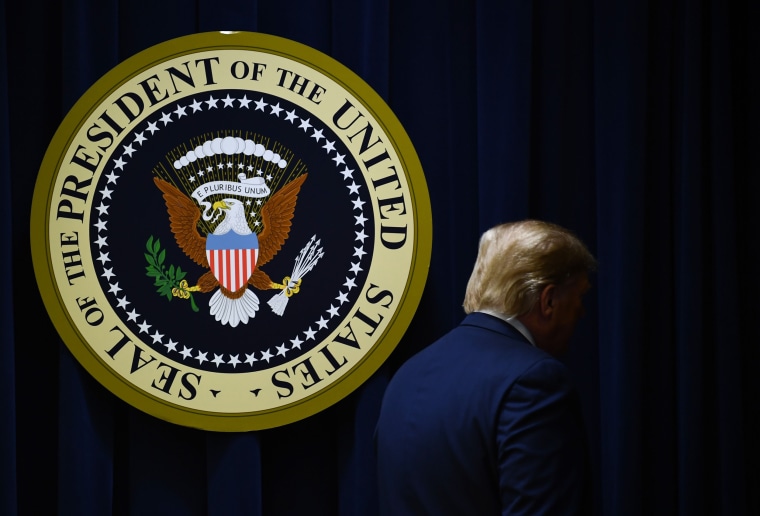As President-elect Joe Biden's transition process formally begins, there will probably be a temptation in some circles to say, "All's well that ends well." Those voices will no doubt acknowledge Donald Trump's autocratic efforts, but they'll add with relief that in the end, "The system worked."
Let's nip this line of thinking in the bud.
The sitting American president sought a second term while actively trying to undermine public confidence in his own country's electoral system. He also broke new ground by refusing to commit to a peaceful transition of power in the event of his defeat.
After Election Day, Trump proceeded to pretend that he'd won an election that he'd lost. The more reality told the incumbent what he didn't want to hear, the more ferocious the president's attacks against his democracy became -- up to and including calls for nullifying election results he didn't like.
Trump filed ridiculous lawsuits, at times asking judges to simply declare him the winner of states in which he was defeated. He raised the specter of state legislatures overturning election results and appointing their own slate of electors in defiance of public will, even bringing some state lawmakers to the White House for in-person lobbying.
He celebrated state and local election officials who resisted their vote-certification processes. He fired the head of the Department of Homeland Security's Cybersecurity and Infrastructure Security Agency because he dared to tell the public the truth about the integrity of the election results. He lied uncontrollably. He sought the disenfranchisement of many Americans, especially in communities of color.
An American president, in other words, sought to overturn an election he lost. It was, as NBC News' First Read team recently put it, "arguably the biggest political scandal we've ever seen in this country." A Washington Post report, citing historians and other experts, said Trump's words and actions reflected "an attempted coup."
Some will look at the current landscape and stress the fact that cooler heads prevailed. Biden will be inaugurated. Trump's efforts are failing. No states are poised to nullify election results at the White House's behest. The president's lawsuits and lies are ongoing, though they seem easier to ignore.
But when children play with matches over a tinderbox, it's cold comfort when the flames are extinguished before they burn the house down.
It's alarmingly easy to imagine a different conversation unfolding right now, following a radical court ruling or two, or perhaps a handful of state and local election officials deciding they'd prefer to invalidate election results they don't like.
That this didn't happen obviously matters, but the idea that it could happen, and the sitting president of the United States wanted it to happen, is emblematic of a systemic threat that will linger.
Dodging a bullet does not mean the bullet was unimportant.
